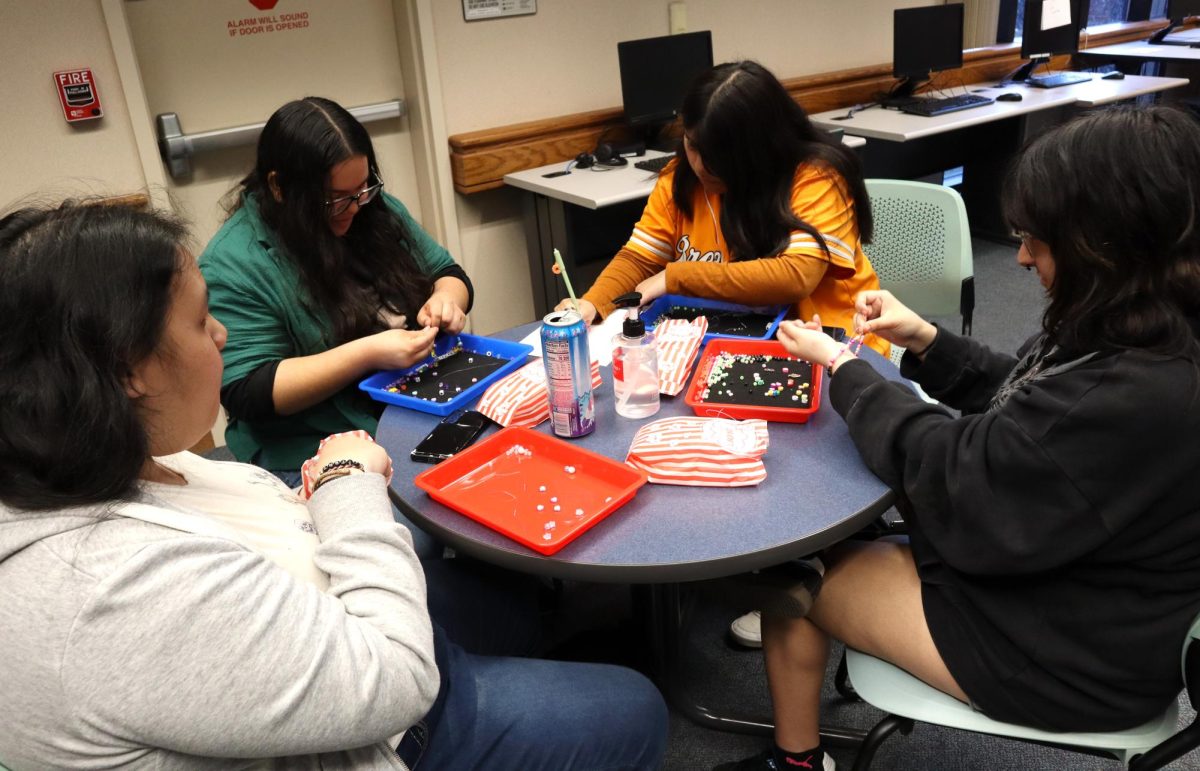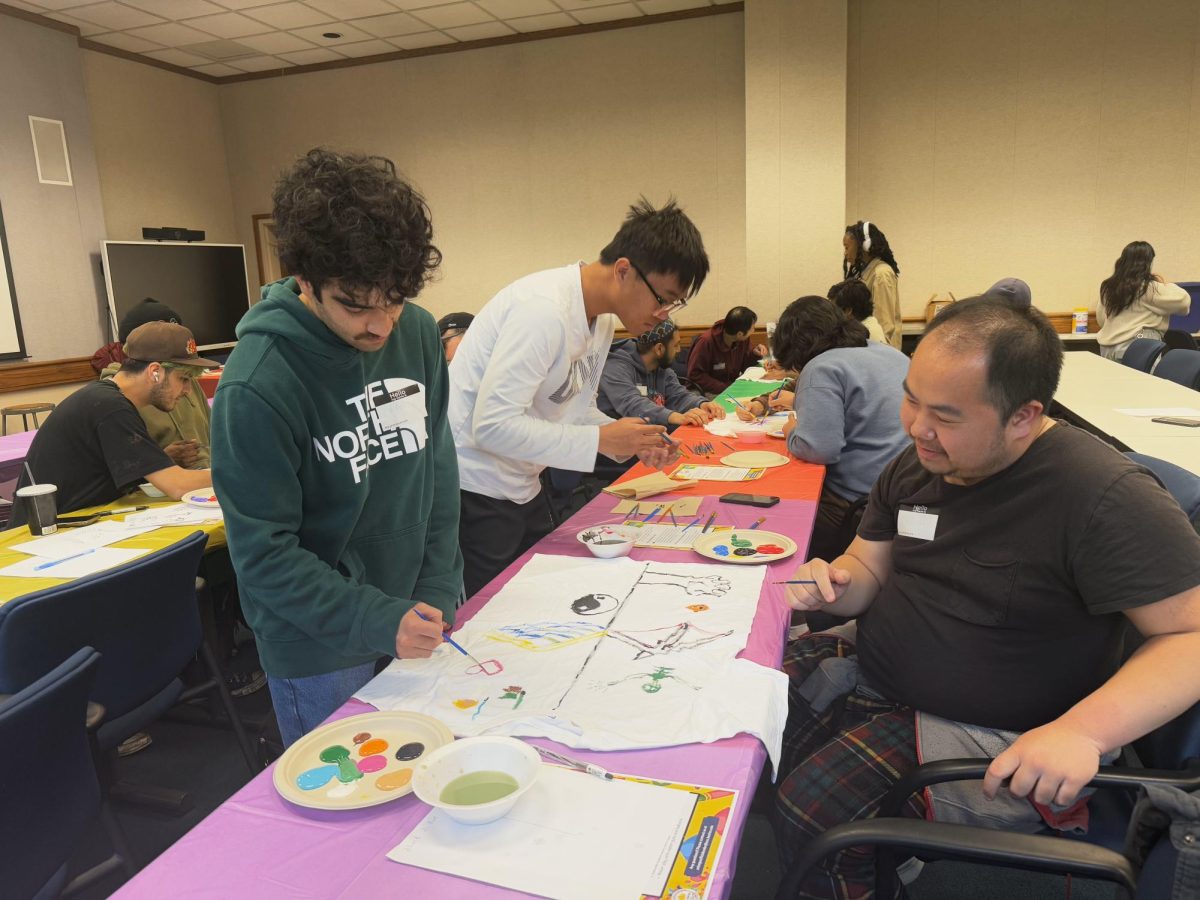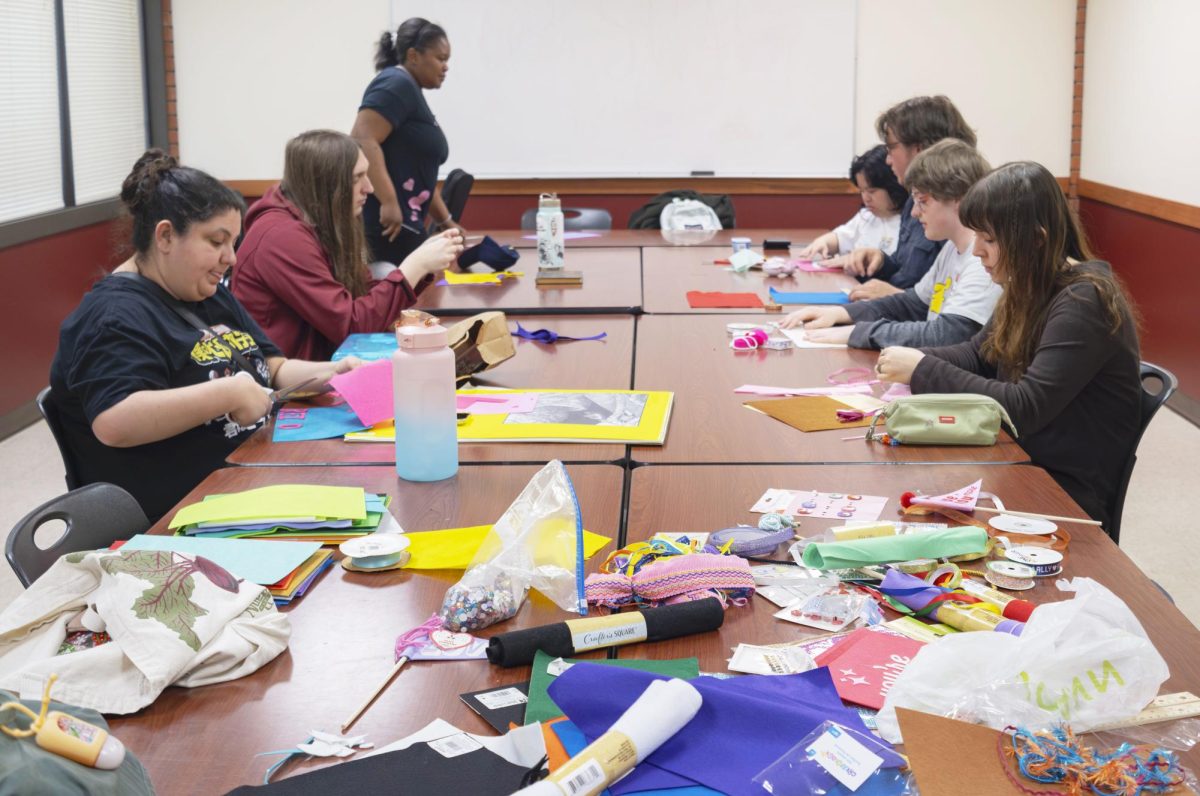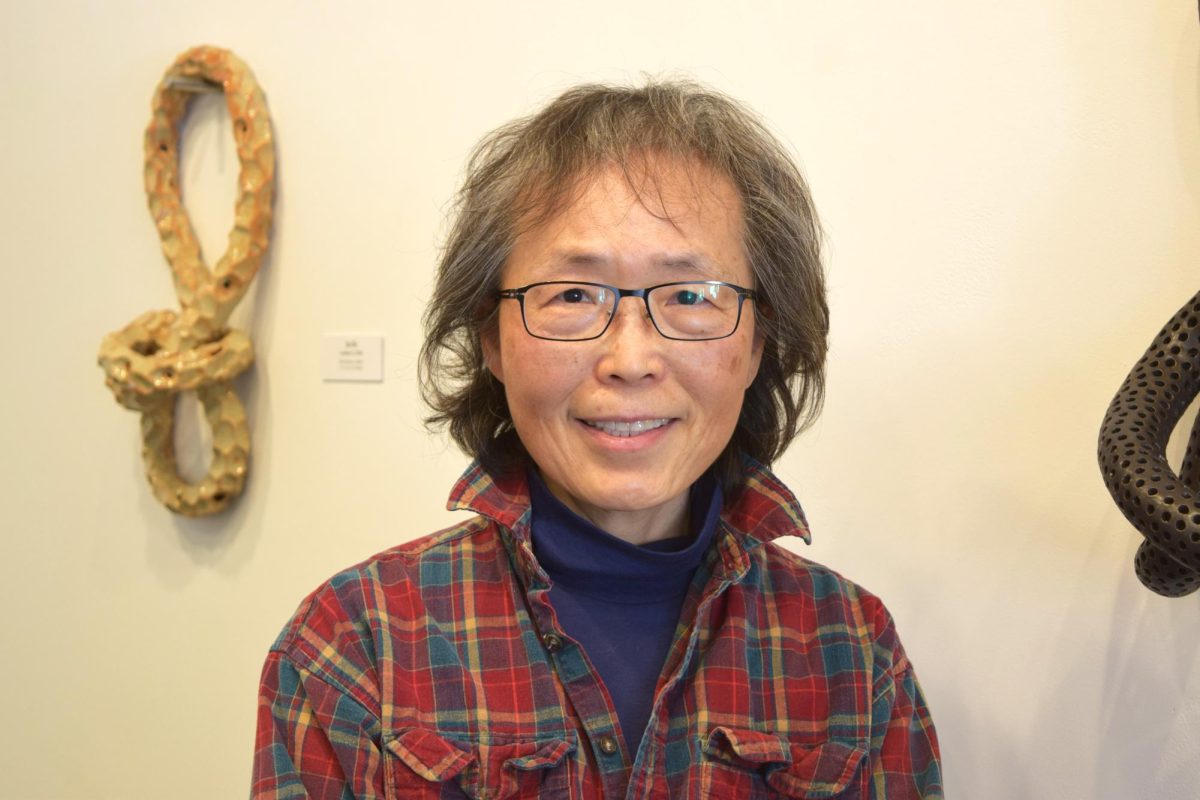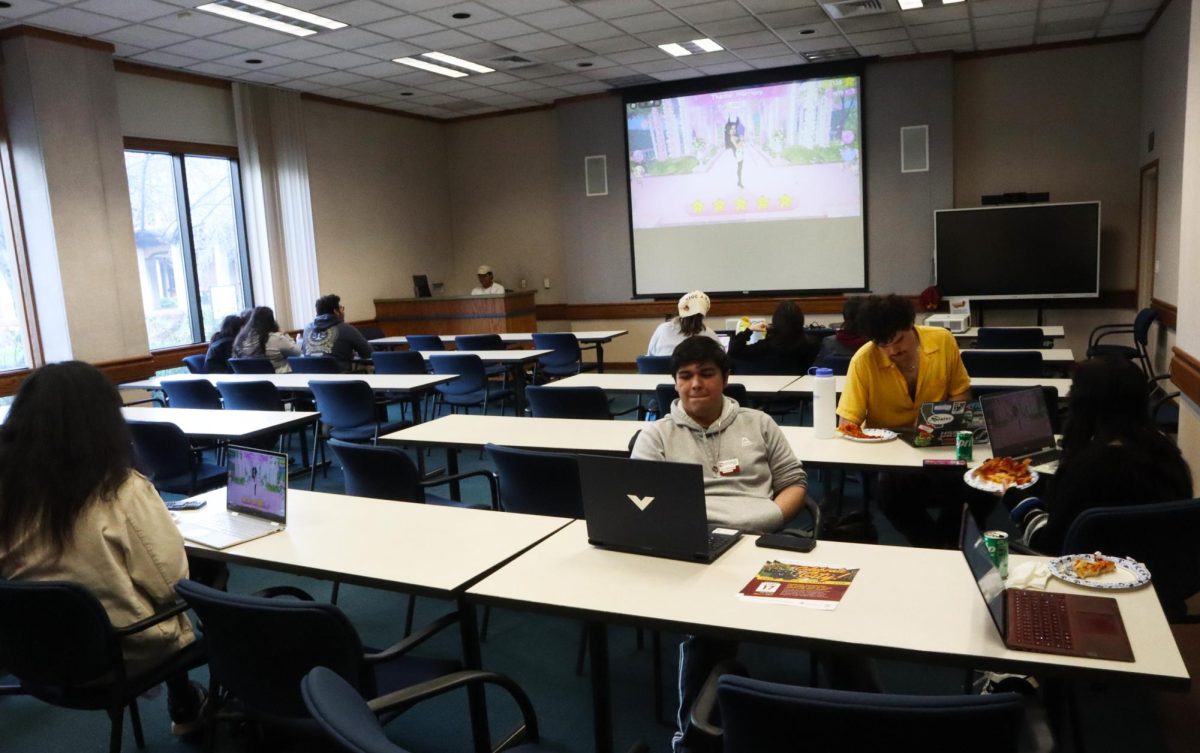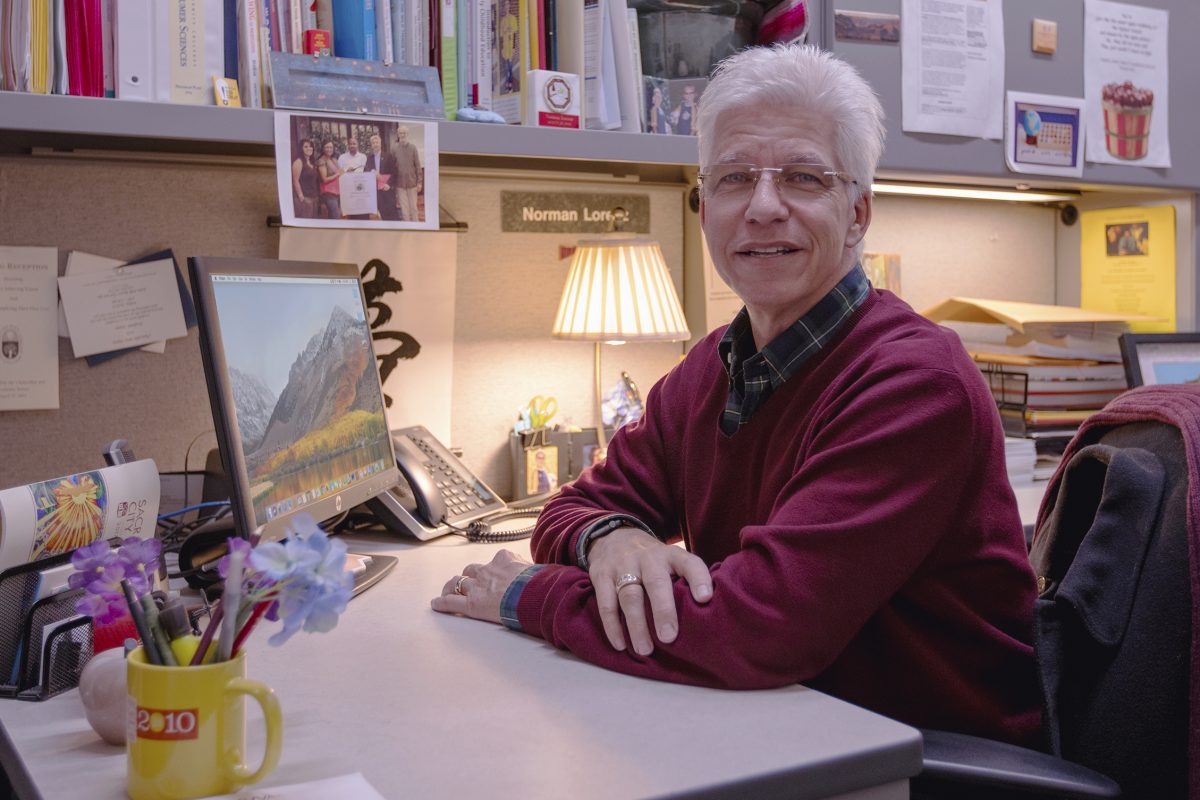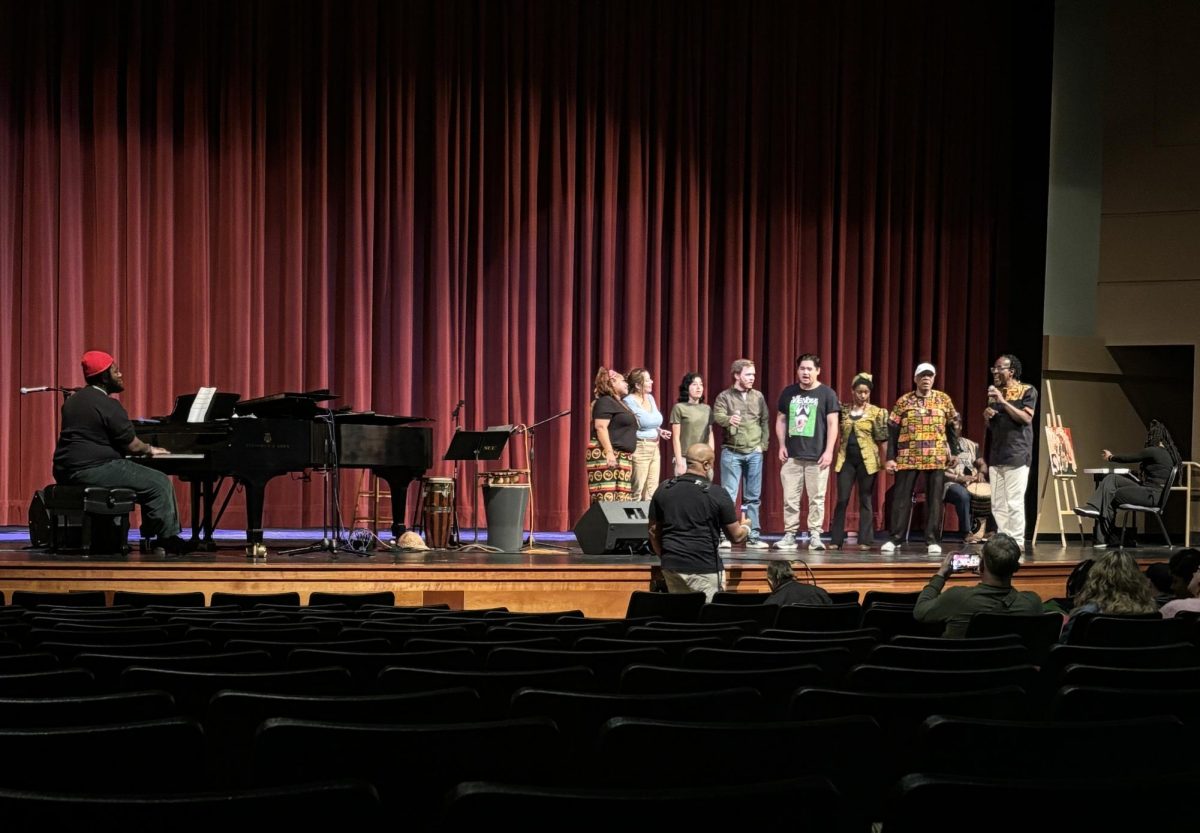As Norman Lorenz reads off each name from the attendance list in his City College Human Development class, he meets every student’s declaration of presence with a friendly “good afternoon.”
Though before class officially begins, Lorenz asks one student to catch everyone up on her brother. Apparently, he has been awarded a spot in the top 15 on this season of “The Voice.” They have all been following the story.
Lorenz encourages this kind of camaraderie between students. The desks are arranged in a series of Socratic semicircles, which, beyond its chaotic appearance, serves as a mechanism through which students are almost forced to interact with one another.
When it comes to Lorenz’s teaching style, tradition is far from an integral component. His lectures are colored with anecdotes. Disruptions are more often acknowledged with curiosity than admonishment. He uses the Montessori approach to teaching, which focuses on self-directed and self-paced learning. It is usually applied in elementary and preschool-aged classrooms, but there are impressions of the Montessori style all over Lorenz’s community college class.
Instead of standing at the front of the room or at a podium, Lorenz usually chooses to weave in and out of the chaotic assembly of chairs, such as when he lectured his students on the importance of doing what makes people happy in life.
“I want you to go out, become the passionate person you have within you, and live out that dream,” he said.
He is speaking from personal experience. For 25 years, Lorenz and his husband owned and ran a chain of Montessori schools. Though he admits that entrepreneurship did not agree with him, it is from the Montessori style of teaching that Lorenz gets his approach to running a classroom.
For him, Montessori means catering to “the whole person,” and not just “the academic.” Outside the classroom, he remembers what teachers were like when he was growing up in Elk Grove.
“You sat in a desk, and you listened to the person at the board do whatever it was that they did,” he says. “And you were either enthralled by them, or you were repelled by them.”
Sara Nelson, owner and director of the Elk Grove Montessori School, found great use in Lorenz’s mode of teaching as she transitioned from college to the workforce in 1993, when she was hired as a teaching assistant at one of Lorenz’s schools. Since then, she says that he has become her “mentor, confidant and friend.”
She recalls an instance where Lorenz used a simple gesture to de-escalate a tense moment during a school tour, when a child was having a meltdown on the floor.
“The anxiety was obvious,” she said. “Norman simply excused himself from the group of observers and walked over and sat criss-cross applesauce next to the child. He sat quietly for a few minutes before engaging with the child verbally, asking about his new shoes. Now, the shoes were far from new, but Norman knew that the issue that was causing the meltdown was due to the shoes,” she recalls.
“After being ignored for some time, Norman simply untied one of his own shoes, took that shoe off, and straightened the toe of his sock, and put the shoe back on his foot and tied it. The child watched intently as Norman did that task completely. Norman looked at the child, and simply reached his two hands out in the child’s direction, which caused the child to hand his shoe to Norman.”
Nelson describes how Lorenz repeated this ritual by straightening the child’s sock, returning the shoe, and tying it. The child hugged him, and Lorenz returned to his tour.
“He saw that the child needed something and made himself available until he could figure out what he could do to help,” she says.
Still, not everyone responds to Montessori teaching with the same level of enthusiasm. A few of Lorenz’s students noted their skepticism.
One student said that he “appreciate[s] traditional lectures because [he has] the material in front of (him), and this is very different.”
Another added that she was “used to having it all laid out.”
However, through becoming his mentee, Nelson says that she has learned “everything” from Lorenz. Most importantly, she learned that “change is inevitable, but growth is the option.”
For Lorenz, Montessori is not just a way of teaching; it’s his life’s philosophy. Sometimes this idea manifests itself in the stories he tells. From a young girl he once taught who stood up to her bully, to a Catholic priest who wrote a book on divorce, his anecdotes hold a noticeable appreciation for the rebels and outcasts of society.
“Growing up as a kid, I was bullied, and I was called a fag,” he says. “And, you know, I knew there was more to life than just that.”
Lorenz has spent over 40 years of his life in education. Not only does he teach at City College, but he works as the campus coordinator for professional development and chair of the LGBTQIA committee, as well as the adviser for the QSA club. He has two adopted children with his husband, with whom he has been partnered with for 38 years. As for retirement, he says he can “see it on the horizon.”
Lorenz has already begun the process of finding ways to keep busy once the idea of retirement becomes a reality. He hopes to assist with local programs that help the homeless, such as Loaves and Fishes. However, even in retirement Lorenz hopes to find a way to teach others. This time it may not be elementary-age students, nor community college students, but prisoners.
“The statistic that bothered me the most, and it drove me to tears, was… 90% of those students identified early and middle and high school failure to be the places where it exacerbated their eventual choices that landed them in prison.”
Lorenz’s eyes begin to well up as he recounts his time visiting San Quentin prison a few weeks earlier when he and an accreditation team were assisting in cultivating an associate degree program for inmates.
“It’s an honorable cause because in most cases society has just kicked them aside,” he says.
“They’re less than human. And I found some people in there who still had a heartbeat, just like you and me.”


